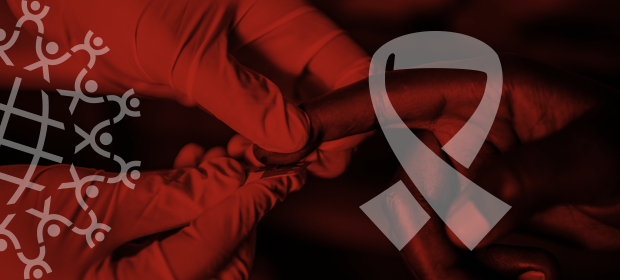Where We Work
See our interactive map


For the past five years, the Evidence to Action (E2A) project in South Sudan worked with the Ministry of Health, local partner organizations, and health workers to improve the health of people living with HIV, including groups that face barriers to health care and higher risks of infection, such as female sex workers.
To meet the needs of these key populations, E2A:
Provided screenings and treatment for sexually transmitted infections and provided gender-based violence screenings and referral services for hard-to-reach female sex workers
Increased access to HIV testing, prevention, and treatment services for female sex workers
Improved access to family planning services and raised awareness of family planning benefits and healthy behaviors.
Instability due to violence and insecurity in South Sudan have led to a weakened health system. As a result, HIV services have suffered. In 2018, only 24% of people living with HIV knew their status and 16% of people living with HIV were on treatment—far from the UNAIDS 90-90-90 targets.
IntraHealth built partnerships with the National Ministry of Health and the South Sudan HIV/AIDS Commission, which allowed the project to partner with 111 public facilities and two private facilities to provide HIV treatment services to clients. Health workers at E2A-supported facilities provided other services such as HIV testing, screening and treatment for sexually transmitted infections, and family planning services through community-based outreach and peer education at sex work hotspots.
As part of the outreach and peer education program, female sex worker volunteers (peer educators) were trained to provide various services to their peers. HIV-positive volunteers (peer navigators) also provided psychosocial support, helped newly diagnosed clients through the ART clinic, and provided basic adherence support.
And the project saw results. Over a five-year period, E2A:
Trained and worked with 52 peer educators and 17 peer navigators
Distributed 6,650,759 male condoms, 43,533 female condoms, and 513,709 water-based lubricants
Conducted 12,372 HIV tests among female sex workers and 7,768 among clients of female sex workers
Linked 1,060 female sex workers and 344 clients of female sex workers to treatment (a 93% linkage rate)
Diagnosed and treated 1,271 cases of sexually transmitted infections
Screened 8,961 female sex workers for gender-based violence and provided services to 2,573 women who reported any form of violence.
“The E2A project has given us a lot of knowledge, skills through training, and hands-on support, which enabled us to support ourselves and our peers with HIV prevention and care services,” says a peer supervisor. “We were able to reach peers who were hidden, hard to reach, and at high risk of HIV with a comprehensive package of services.”
To ensure high-quality HIV testing services and strengthen key population programming, the project worked with the Ministry of Health to help supervise services and capture and review data. The project also helped establish strong monitoring and evaluation systems, disseminated national guidelines for key populations programs, and made data available at the national level.
Read more:
E2A was a five-year project funded by the US Agency for International Development. It was first implemented through the FHI360-led LINKAGES award and for the past two years through the Pathfinder-led global Evidence to Action (E2A) award. It was led by Pathfinder International in partnership with African Population and Health Research Center, ExpandNet, IntraHealth International, Management Sciences for Health (MSH), and PATH.



